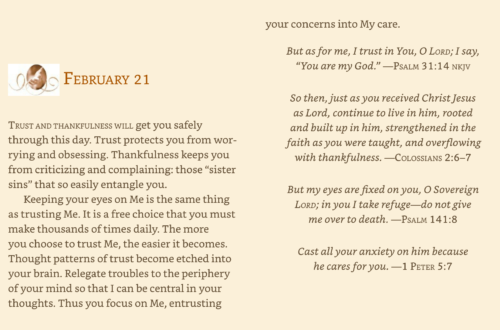What Is Intimacy?
Father Richard Rohr shares his understanding of intimacy and what prevents us from experiencing intimacy with God and one another:
Intimacy could be described as our capacity for closeness and tenderness toward things. It is often revealed in moments of risky self-disclosure. Intimacy lets itself out and lets the other in. It makes all love possible, and yet it also reveals our utter incapacity to love back as the other deserves. None of us can go there without letting down our walls, manifesting our deeper self to another, and allowing the flow to happen.
True human intimacy or divine intimacy is somewhat rare and very hard for all of us, but particularly for men and for all who deem themselves important people, that is, those who are trained to protect their boundaries, to take the offensive, and to avoid all signs of weakness or neediness. God seems to have begun thawing this glacial barrier by coming precisely in male form as Jesus, who exposes maleness itself as also naked, needy, and vulnerable. The transmission of the inner mystery of God continues in space and time primarily through what Jesus calls again and again “the little ones” and “the poor in spirit,” which he himself became.
I think that many of us are afraid of intimacy, of baring our deepest identity to another human or even to God. Yet people who risk intimacy are invariably happier and much more real people. They feel like they have lots of “handles” that allow others to hold onto them and that allow them to hold onto themselves. People who avoid such intimacy are imprisoned in a small and circumscribed world. Soulful intimacy is a gateway into the sacred realm of human and divine love.
Therapists Jett Psaris and Marlena Lyons have found that our longing for intimacy can only be met when we soften the guardedness around our hearts:
We long to love from the fullness of our undefended hearts and we long to be loved unconditionally and without reservation. . . . The dual yearning of the human heart finds its satisfaction in the struggle to know ourselves at our most vulnerable levels. The deeper we know ourselves, the deeper is our capacity to know others intimately. . . . It is our deep hunger for this level of loving that moves us beyond our resistance, fear, and shortcomings to see what is special and unique about us. It allows us to see the profound core of another and to have that core be fully seen in ourselves. [1]
Father Richard concludes:
We all desire true and intimate love. This longing seems to be hardwired into our beings. We have to want very strongly to love and to be loved—or we will never go to this strange place, and we will never find our True Selves. So, God obliges and creates us in just that way, with a bottomless and endless need to be loved and to love.
Responsive Vulnerability
Father Richard believes that we can only experience true intimacy when we are willing to be vulnerable ourselves:
The big and hidden secret is this: an infinite God seeks and desires intimacy with the human soul. Once we experience such intimacy, only the intimate language of lovers describes what is going on for us: mystery, tenderness, singularity, specialness, nakedness, risk, ecstasy, incessant longing, and also, of course, suffering. This is the mystical vocabulary of the saints.
Our biggest secrets and desires are often revealed to others, and even discovered by ourselves, in the presence of sorrow, failure, or need—when we are very vulnerable, and when we feel entirely safe in the arms of love. When that happens, there is always a broadening of being on both sides. We are larger people afterwards.
And it is only when we are in such a tender place that God can safely reveal the “inside” of God to us. All self-sufficient people remain outsiders to the mystery of divine love because they will always misuse it. Only the need of a beloved knows how to receive the need and gift of the lover, and only the need of a lover knows how to receive the need and gift of the beloved without misusing such love. It is a kind of deliberate “poverty” on both sides. A mutually admitted emptiness is the ultimate safety net for love.
“Fullness” in a person cannot permit love because it leaves no openings, offers no handles, no give and take, nor is there any deep hunger. Human vulnerability gives the soul an immense head start on its travels.
Our desire for intimacy or communion first creates the very hunger that God, with a little help from God’s friends, can then satisfy (though never totally) in this world. In fact, the bit of satisfied desire only increases the desire for more and again! The mystics (those who personally know the inner space of God) are aware that they have been let in on a big and wondrous secret. Anyone not privy to this inner dialogue would call such people presumptuous, foolish, or even arrogant. This is without a doubt “God’s secret, in which all the jewels of wisdom and knowledge are hidden” (Colossians 2:3).
The secret becomes unhidden when people stop hiding—from God, from themselves, and from at least one other person. Such risky self-disclosure is what I mean by intimacy and it is the way that love is transmitted. Some say the word comes from the Latin intimus, which is interior or inside. Some say its older meaning is found by in timor, “into fear.” In either case, the point is clear. Intimacy happens when we expose our insides and this is always scary. We never really know if the other can receive what is exposed, will respect it, or will run fast in the other direction. We must be prepared to be rejected. It is always a risk.
